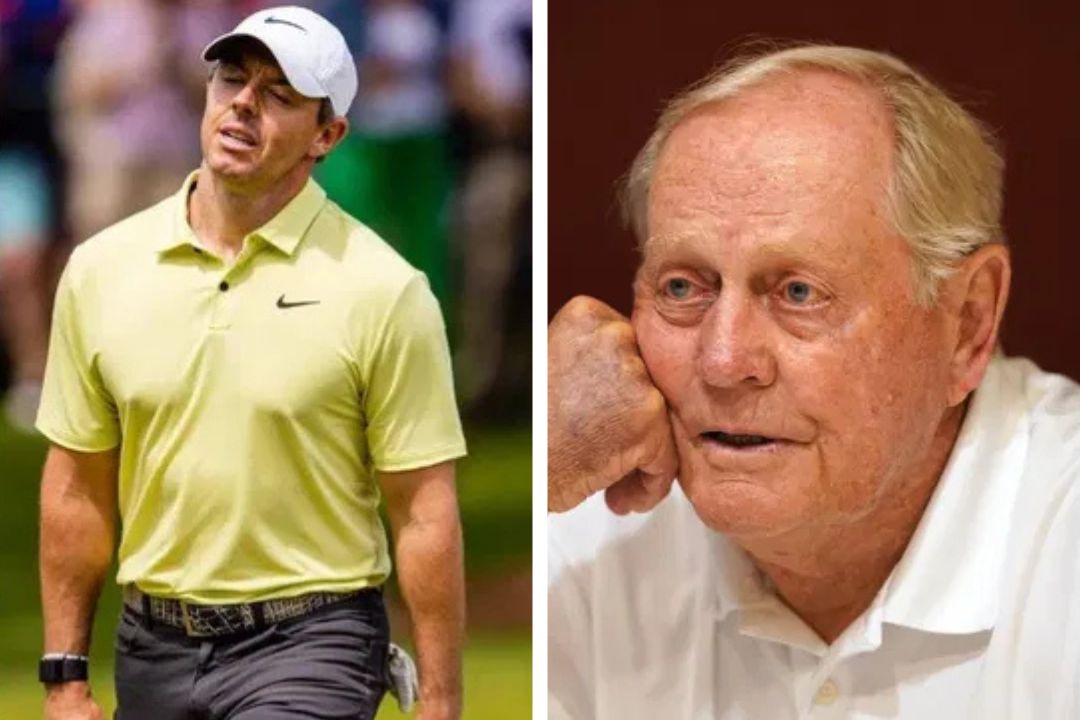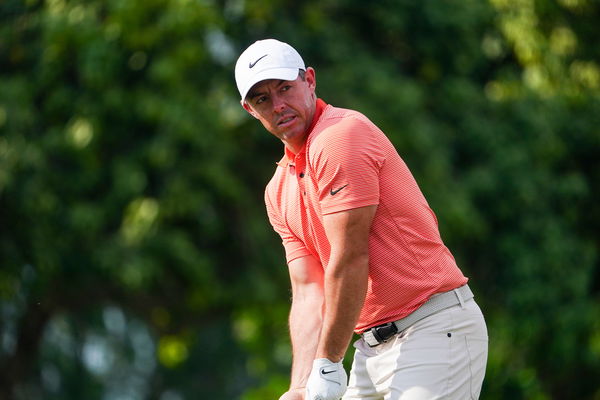
Imago
Image Credits: Imago

Imago
Image Credits: Imago
You know how Arnold Palmer shows up to every single golf event imaginable? Yeah, well, those days are dead and buried. Arnie genuinely believed stars owed it to fans to be everywhere – small-town pro-ams, major championships, the whole nine yards. But get this: even the most controversial scheduling decisions are now getting the green light from golf’s biggest names.
Watch What’s Trending Now!
Rory McIlroy‘s decision to skip Jack Nicklaus‘s Memorial Tournament has drawn fierce criticism from fans and media alike. However, a 5 Clubs podcast analysis reveals a surprising shift in perspective. Golf expert Brendan Porath defended McIlroy’s choice while highlighting a crucial detail many missed.
The conversation between 5 Clubs host Gary Williams and Porath exposed the complexity behind McIlroy’s signature event absences. This development comes after Jack Nicklaus previously called out McIlroy’s tournament choices, making the recent defense even more significant. ‘I don’t fault Rory,’ Porath stated, offering a perspective that sharply contrasts with earlier criticism.
ADVERTISEMENT
Porath emphasized how McIlroy actually boosted the PGA Tour through strategic scheduling. “He did them an enormous favor by adding Houston. He satisfies going back to Zurich. So in the offset of not being at a couple of signature series events, he really really raises the profile of New Orleans and Houston by going to those events,” Porath explained during the broadcast.

Imago
Hero Dubai Desert Classic Rory McIlroy NIR on the 13th tee during the final round of the Hero Dubai Desert Classic, Emirates Golf Club, Dubai, United Arab Emirates. 19/01/2025 Picture: Golffile Fran Caffrey All photo usage must carry mandatory copyright credit Golffile Fran Caffrey Copyright: xFranxCaffreyx *EDI*
The podcast revealed McIlroy’s third signature event miss of 2025, following absences from the Sentry Tournament and RBC Heritage. Yet Porath argued this pattern demonstrates smart course management rather than tour abandonment. “There are indications he might play Canada as well, so it’s not like he’s completely abandoned the tour,” he noted.
ADVERTISEMENT
Williams and Porath discussed the broader challenge facing Strategic Sports Group in ensuring top players gather consistently. “It’s going to be an uphill battle because you’re talking about Rory McIlroy who will miss his third signature event of the year and he was sort of a leading voice of like hey let’s suck it up this is for the better of the product,” Porath observed.
While the podcast analysis defended McIlroy’s recent choices, understanding his evolving tournament philosophy requires looking at the bigger picture.
ADVERTISEMENT
Top Stories
Huge Fire Destroys Over 125-Year-Old Golf Club Designed by 5x Open Winner in London – Report

Scottie Scheffler’s Caddie Shares Cryptic Message as He Bids Fans ‘Goodbye’

Tiger Woods’ Warm Moment With Ex-Wife Elin Nordegren Caught on Camera at Son Charlie’s Junior Event

Brooks Koepka’s LIV Golf Exit Explained as Ex-Pro Reveals Brutal Reality

Ex-Wife Elin Nordegren’s Reaction to Tiger Woods Dating Vanessa Trump Speaks Volumes

Rory McIlroy’s strategic approach to PGA Tour events
McIlroy’s approach to tournament participation has undergone a dramatic transformation throughout his career. Early in his professional journey, he played nearly everything, often competing in 25-27 events annually across multiple tours.
However, recent years have witnessed a strategic shift toward selective participation. His 2025 schedule reflects careful prioritization, targeting 18-20 events compared to his previous marathon campaigns. This evolution stems from lessons learned about peak performance timing and physical preservation.
ADVERTISEMENT
The Northern Irishman’s relationship with individual tournaments has also evolved significantly. He previously advocated for moving the Memorial Tournament away from its U.S. Open preparation slot, ironically helping create the standalone significance he now chooses to skip. His decision to prioritize the RBC Canadian Open over the Memorial demonstrates loyalty to events where his presence creates maximum impact.
McIlroy’s strategic additions of non-signature events like the Houston Open and Zurich Classic prove his commitment extends beyond mere obligation. These choices elevate smaller tournaments while preserving energy for majors. His approach reflects modern golf’s reality, where strategic scheduling trumps traditional expectations.
What makes this evolution particularly fascinating is how golf’s establishment has begun embracing rather than criticizing these choices. The podcast discussion suggests even legends like Nicklaus understand the current landscape’s demands.
ADVERTISEMENT
“It’s a massive uphill battle to make these players show up at all the same places,” Porath concluded, acknowledging the new reality facing professional golf.
ADVERTISEMENT
ADVERTISEMENT
ADVERTISEMENT

